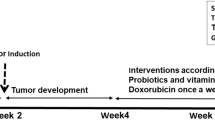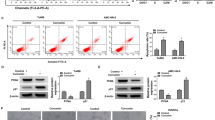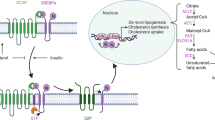Abstract
Flaxseeds have been shown to play a role in the prevention of cancer and heart disease, and it is believed that their more favorable fatty acid composition is responsible. Sprouting is a natural method to modify nutritional components and to decrease cyanide poisoning of raw flaxseeds. Here, we investigated the in vitro effects of flaxseed sprouts on cell growth and apoptosis of human breast cancer cells. In a series of in vitro experiments, estrogen-receptor-positive (MCF-7) and estrogen-receptor-negative (MDA-MB-231) cells were cultured and treated with flaxseed sprouts, and then cell proliferation, apoptosis, and gene expression were measured. Flaxseed sprouts significantly reduced the growth of both of MCF-7 and MDA-MB-231 cells and also increased apoptosis. However, flaxseed sprouts did not affect the growth of MCF-10A mammary epithelial cells. In gene transcription analysis using quantitative real-time polymerase chain reaction, flaxseed sprout treatment significantly upregulated p53 mRNA in both cell cancer lines. These results suggest that flaxseed sprouts induce apoptosis and inhibit cancer cell growth, thereby demonstrating their anti-proliferative effects in breast cancer cells. This study may provide important information for devising dietary strategies to reduce breast cancer risk.



Similar content being viewed by others
References
Bergman Jungeström M.; Thompson L. U.; Dabrosin C. Flaxseed and its lignans inhibit estradiol-induced growth, angiogenesis, and secretion of vascular endothelial growth factor in human breast cancer xenografts in vivo. Clin. Cancer Res. 13: 1061–1067; 2007.
Call J. A.; Eckhardt S. G.; Camidge D. R. Targeted manipulation of apoptosis in cancer treatment. Lancet Oncol. 9: 1002–1011; 2008.
Chadha R. K.; Lawrence J. F.; Ratnayake W. M. Ion chromatographic determination of cyanide released from flaxseed under autohydrolysis conditions. Food Addit. Contam. 12: 527–533; 1995.
Chajès V.; Sattler W.; Stranzl A.; Kostner G. M. Influence of n-3 fatty acids on the growth of human breast cancer cells in vitro: relationship to peroxides and vitamin-E. Breast Cancer Res. Treat. 34: 199–212; 1995.
Chen J.; Saggar J. K.; Corey P.; Thompson L. U. Flaxseed and pure secoisolariciresinol diglucoside, but not flaxseed hull, reduce human breast tumor growth (MCF-7) in athymic mice. J. Nutr. 139: 2061–2066; 2009.
Cho K.; Mabasa L.; Fowler A. W.; Walsh D. M.; Park C. S. Canola oil inhibits breast cancer cell growth in cultures and in vivo and acts synergistically with chemotherapeutic drugs. Lipids 45: 777–784; 2010.
Eischen C. M.; Lozano G. p53 and MDM2: antagonists or partners in crime? Cancer Cell. 15: 161–162; 2009.
Garcia-Gonzalez L.; Geeraerd A. H.; Spilimbergo S.; Elst K.; Van Ginneken L.; Debevere J.; Van Impe J. F.; Devlieghere F. High pressure carbon dioxide inactivation of microorganisms in foods: the past, the present and the future. Int. J. Food Microbiol. 117: 1–28; 2007.
Haupt Y.; Maya R.; Kazaz A.; Oren M. Mdm2 promotes the rapid degradation of p53. Nature 387: 296–299; 1997.
Kelley D. S. Modulation of human immune and inflammatory responses by dietary fatty acids. Nutrition 17: 669–673; 2001.
Kubbutat M. H. G.; Jones S. N.; Vousden K. H. Regulation of p53 stability by Mdm2. Nature 387: 299–303; 1997.
Kussie P. H.; Gorina S.; Marechal V.; Elenbaas B.; Moreau J.; Levine A. J.; Pavletich N. P. Structure of the MDM2 oncoprotein bound to the p53 tumor suppressor transactivation domain. Science 274: 948–953; 1996.
Lewis J. S.; Jordan V. C. Selective estrogen receptor modulators (SERMs): mechanisms of anticarcinogenesis and drug resistance. Mutat. Res. 591: 247–263; 2005.
Paruthiyil S.; Parmar H.; Kerekatte V.; Cunha G. R.; Firestone G. L.; Leitman D. C. Estrogen receptor beta inhibits human breast cancer cell proliferation and tumor formation by causing a G2 cell cycle arrest. Cancer Res. 64: 423–428; 2004.
Ridel S. J.; Shi Y. Molecular mechanisms of caspase regulation during apoptosis. Nat. Rev. Mol. Cell Biol. 5: 897–907; 2004.
Rose D. P.; Connolly J. M. Omega-3 fatty acids as cancer chemopreventive agents. Pharmacol. Ther. 83: 217–244; 1999.
Shahidi F.; Wanasundara P. K. Cyanogenic glycosides of flaxseeds. ACS Symp. Ser. 662: 171–185; 1997.
Tou J. C.; Chen J.; Thompson L. U. Flaxseed and its lignan precursor, secoisolariciresinol diglycoside, affect pregnancy outcome and reproductive development in rats. J. Nutr. 128: 1861–1868; 1998.
Wanasundra P. K.; Shahidi F.; Brosnan M. E. Changes in flax (Linum usitatissimum) seed nitrogenous compounds during germination. Food Chem 65: 289–295; 1999.
Yang H.; Sun W.; Zhong Y. Four detoxification technologies of flaxseed. Shipin Kexue 29: 245–248; 2008.
Acknowledgment
We thank Mark W. Walters, Haram Kim, and Dr. Tao Wang for their help in preparing the manuscript. We also wish to thank Dr. Chung S. Park, Dr. Chiwon W. Lee, and Dr. Jae-Bom Ohm.
Conflict of interest statement
None declared.
Author information
Authors and Affiliations
Corresponding author
Additional information
Editor: T. Okamoto
Rights and permissions
About this article
Cite this article
Lee, J., Cho, K. Flaxseed sprouts induce apoptosis and inhibit growth in MCF-7 and MDA-MB-231 human breast cancer cells. In Vitro Cell.Dev.Biol.-Animal 48, 244–250 (2012). https://doi.org/10.1007/s11626-012-9492-1
Received:
Accepted:
Published:
Issue Date:
DOI: https://doi.org/10.1007/s11626-012-9492-1




